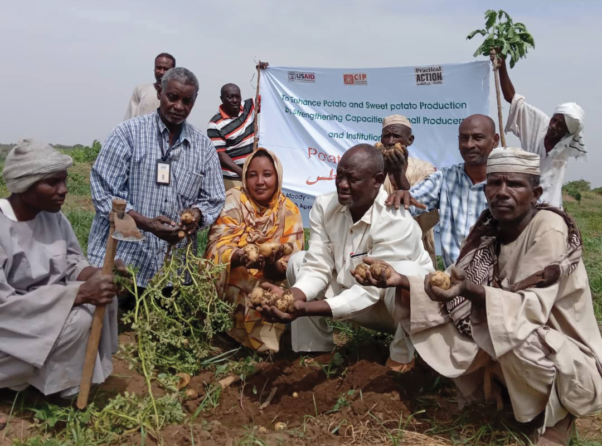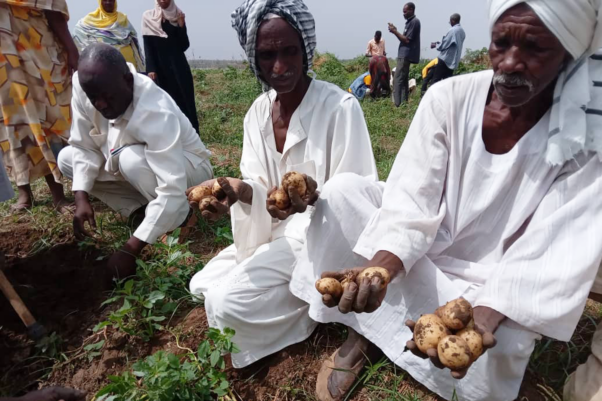With over half of Sudan’s population facing hunger, farmers in the country’s east have turned to cultivating potatoes and sweet potatoes. This is not the first time these crops serve as lifeline for people in need.

In New Halfa, Eastern Sudan, farmers are cautiously optimistic as food production increases compared to last year, thanks to improved rainfall and support from international organisations. Specifically, potato and sweetpotato cultivation has received a boost, with 180 hectares of potatoes planted this winter, expected to yield over 1,200 tons.
With less than a third of Sudan’s farmland in use, these developments are crucial. Ongoing conflict between the Sudanese Armed Forces and the Rapid Support Forces has resulted in the world’s largest hunger crisis, affecting 26 million. A report from the Norwegian Refugee Council reveals that hunger is being used as a weapon, disrupting food systems and blocking aid.
With a ceasefire out of reach and food aid struggling to enter, local food production is critical. Potatoes and sweetpotatoes are ideal crops: Both mature quickly, are drought-tolerant, and provide essential nutrients. They need significantly less water than cereals and yield up to four times more food. In addition, sweetpotato vines also serve as excellent livestock feed, making them vital amid Eastern Sudan’s ongoing water crisis and grazing conflicts.
In this challenging context, the International Potato Center (CIP) is stepping in to provide support. The global research organisation improves livelihoods, nutrition, and food security. In Sudan, CIP and partners, supply potato seeds, sweetpotato vines, as well as agricultural training, and have established 30 farmer field schools. Many of these initiatives are funded by USAID through the Sustainable Agrifood Systems Approach for Sudan (SASAS) project.
CIP has also invested in crucial infrastructure, including seven cold storage units capable of 650 tons of potatoes. To enhance livestock feeding, 40 silage cutting machines, and 25 silage silos have been installed. Additionally, a tissue culture lab and screenhouse in Kassala City are essential for providing farmers with high-quality planting materials free of pest and diseases.
CIP has a history of providing emergency relief services by promoting improved potato and sweetpotato farming in disaster and conflict-affected areas. Recent interventions in Mozambique and Ethiopia boosted food production for hundreds of thousands. As Sudan’s farmlands become battlegrounds, potatoes and sweetpotatoes may once again serve as a crucial lifeline for many.

